What is Rockwell Hardness Tester Pricing Guide
Rockwell hardness tester is an essential instrument used for measuring the hardness of various materials. This measurement is crucial as it helps in determining the wear resistance, strength, and suitability of a material for specific applications. The Rockwell scale defines different hardness testing procedures, each designated by a specific combination of a preliminary load (ap), a secondary material scale (b), and a diamond penetrator or ball indenter. The result of the test is expressed as a dimensionless number, which enables the comparison of the hardness of different materials.
The device is widely employed in industrial sectors such as metal fabrication, automotive, aerospace, and quality control laboratories. It caters to professionals who require precise hardness measurements for material acceptance and compliance with industry standards. The principle of operation involves the application of a load that is typically either spring or dead-weight, which causes an indenter to press into the material surface. By measuring the depth of the indentation after the load is removed, the hardness value is determined.
Rockwell hardness testers come in various designs, ranging from handheld models to large-scale machines. They are built to provide accurate and consistent results, which is essential for quality control in manufacturing processes. These devices are also designed to be user-friendly, with clear displays and simple operation, making them accessible not only to professionals but also to workers with minimal training.
Rockwell Hardness Tester Pricing Guide - How Much Does a Rockwell Hardness Tester Cost?
Rockwell Hardness Testers can be found at a variety of price points, each corresponding to different levels of sophistication and specific use cases. Here's a look at some common models:
-
Basic Rockwell Hardness Testers: These are typically manual machines that apply a force to a material using a conical or pyramid-shaped indenter. They are suitable for testing the hardness of large specimens but require an operator to perform the test.
-
Digital Rockwell Hardness Testers: These testers have an electronic force gauge that measures the force applied to the material and uses a digital readout to display the hardness value. They are user-friendly and often feature data storage and analysis capabilities.
-
Motorized Rockwell Hardness Testers: Designed for high-volume testing, these machines use a motor to apply force consistently. They are ideal for a production line where time efficiency is crucial.
-
Portable Rockwell Hardness Testers: These are lightweight and designed for on-site testing without compromising accuracy. They're perfect for use in workshops or at construction sites.
-
Microhardness Testers: With high precision, these testers can measure small areas or thin sections. They're commonly used in industries where product homogeneity is critical.
Each type serves different use cases and is engineered to meet specific application requirements.
How to choose Rockwell Hardness Tester Pricing Guide
Selecting the appropriate Rockwell Hardness Tester requires consideration of several factors to ensure it meets your business's needs effectively. The material being tested is a critical aspect; hence, understanding the range and accuracy required is paramount. For instance, HRC testers are commonly used for metals due to their hardness range, while HV testers are employed for softer materials like plastics.
The tester's capacity is another crucial factor. A tester with a larger capacity can accommodate a wider range of materials, making it more versatile for various testing scenarios. Customization options such as OEM or ODM support may also be important if your business requires specialized testing equipment aligned with your operations or products.
Moreover, consider the model's compatibility with different sample sizes and shapes. Some testers are designed specifically for small or intricate samples and may not be suitable for larger items. In addition, evaluate the convenience features such as automatic loading and unloading systems that can streamline your testing process.
Finally, assess the tester's user interface and reporting capabilities. An intuitive interface ensures easy operation and detailed reporting can enhance your quality control procedures by providing comprehensive feedback on the tested materials.
About Rockwell Hardness Tester Pricing Guide on Alibaba.com
Alibaba.com stands as a global marketplace connecting businesses with a vast array of suppliers offering Rockwell hardness testers suitable for every industry need. With an extensive selection of models from standard benchtop units to sophisticated portable devices, Alibaba.com facilitates finding the right tool for your specific application—whether it's for routine quality control or advanced research and development purposes.
The platform's commitment to fostering seamless transactions is evident through services like Trade Assurance which safeguards payments until delivery confirmation. This feature underscores Alibaba.com's dedication to providing secure trading experiences while ensuring customer satisfaction.
Furthermore, Alibaba.com's international reach means that no matter where your business is located, you have access to leading suppliers offering an array of hardness testing solutions. This inclusivity is bolstered by user-friendly mobile features and multilingual communication options which streamline the buying process. By choosing Alibaba.com as your sourcing platform, you're not only selecting from among quality products but also leveraging a robust system designed to support your business's growth around the world.
Common FAQs for Rockwell Hardness Tester Pricing Guide
What is the Rockwell hardness scale and what does it measure?
The Rockwell hardness scale is a common method for quantifying the hardness of metals and alloys. It determines hardness by measuring the depth of an indentation left by a specific load on a material's surface, which is then converted into a numerical value on the Rockwell scale.
How does the Rockwell hardness test work?
The Rockwell hardness test uses a steel ball or indenter to create an impression on the surface of the material being tested. This hardness measurement is then correlated to a hardness value on the Rockwell C scale.
What materials can be tested with a Rockwell hardness tester?
Rockwell hardness testers can be used to test a wide range of metallic materials, including carbon steel, stainless steel, aluminum alloys, and various tool steels.
What are the advantages of using a Rockwell hardness tester over other methods?
Rockwell hardness testers provide a reliable and consistent method for assessing the hardness of a material. They are not as affected by surface treatments and provide a measurement that is directly related to material strength.
Can Rockwell hardness be used to evaluate the hardness of different metals?
Yes, Rockwell hardness testing is versatile and can be used to evaluate the hardness of a variety of metals. However, different scales may be required for different types of metals; it's important to consult the manufacturer's guidelines.
Are portable Rockwell hardness testers available for field use?
Yes, there are portable Rockwell hardness testers that are designed for field use. These often feature battery operation and are ideal for applications where mobility is necessary.
Is it possible to customize a Rockwell hardness tester for specific testing needs?
Some suppliers may offer customized support such as ODM or OEM services to tailor the Rockwell hardness tester to specific testing requirements or environmental conditions.
What should I consider when choosing a Rockwell hardness tester for my business?
Consider the types of materials you will be testing, the required precision and speed of testing, portability if needed, and any additional features that could benefit your operations or client base.
Can I use a Rockwell hardness tester to test thin materials or small components?
Rockwell hardness testers are best suited for testing larger, solid parts. However, there are specific models designed for thin materials or small components; these may feature specialized test tips or lower testing forces to accommodate delicate pieces.
How do environmental factors affect Rockwell hardness testing?
Environmental factors such as temperature and humidity can influence the measurements of a Rockwell hardness tester. It's important to follow the manufacturer's guidelines and use the instrument within its specified environmental conditions.
Are there any safety considerations when using a Rockwell hardness tester?
When operating a Rockwell hardness tester, it is important to follow safety guidelines such as wearing appropriate personal protective equipment, ensuring a stable testing environment, and understanding the potential hazards associated with the test method.
What is Trade Assurance on Alibaba.com and how does it relate to purchasing Rockwell hardness testers?
Trade Assurance is a service provided by Alibaba.com that helps protect buyer payments until their order is delivered satisfactorily. When purchasing Rockwell hardness testers through Alibaba.com, buyers benefit from this service.
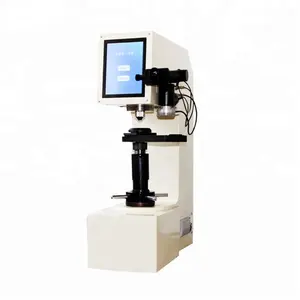

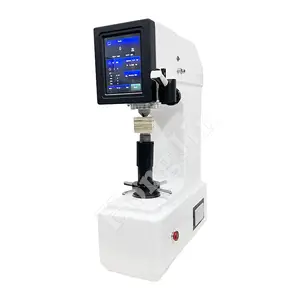



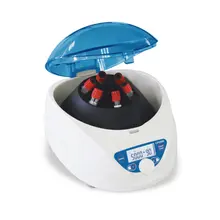

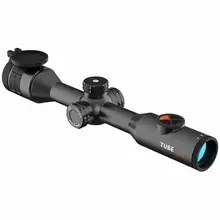




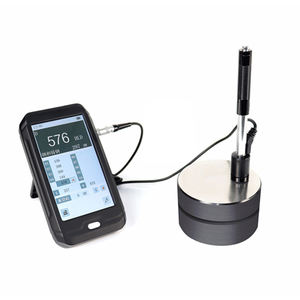















 浙公网安备 33010002000092号
浙公网安备 33010002000092号 浙B2-20120091-4
浙B2-20120091-4